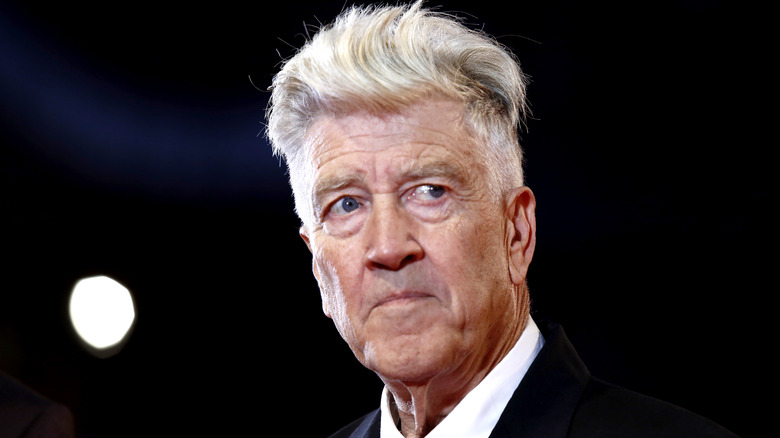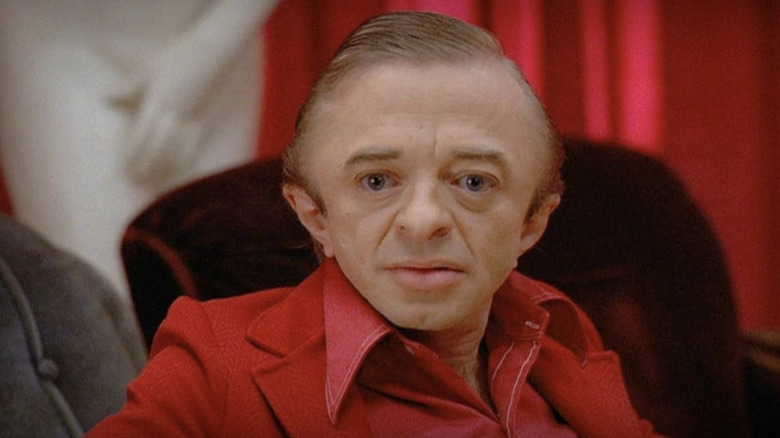
David Lynch as a man and creative force is impossible to describe, as he’s an enigma wrapped in cosmic brilliance that we can only pretend we were worthy enough to understand. The legend departed our mortal plane at the age of 78, leaving a legacy of inimitable cinematic, television, and storytelling achievements, where even his “worst” film is better than the average filmmaker’s very best. His 2007 film “David Lynch Cooks Quinoa” is one of the most captivating works of short-form filmmaking, and it’s legitimately just a video of the famed director doing exactly as the title says — cooking quinoa. (For the record, his quinoa recipe is pretty damn good.)
He’s a creative force so singular and unique that his work helped us make sense of our own existence. His auteur perspective on the world around us was so distinct that we had to invent the term “Lynchian” before we could even dare attempt to wrap our heads around it. He inspired countless other creatives and is solely responsible for why so many of us fell in love with film, but there will truly never be anyone like him.
This is why it is so strange to know that one of Lynch’s greatest passion projects never came to fruition despite 40 years of trying.
Following the success Lynch found with 1977’s “Eraserhead,” he began developing a film called “Ronnie Rocket: or The Absurd Mystery of the Strange Forces of Existence.” He intended for it to be his follow-up feature, but after he was unable to secure funding, he shelved the project and instead pursued what would become another one of his eventual classics, “The Elephant Man.” He picked it up again in the 1980s, but by then he felt like it was never going to happen.
What is Ronnie Rocket about?
“Ronnie Rocket” is a story about a detective trying to gain access to a second dimension thanks to his ability to stand on one leg, although he’s thwarted on his journey by a strange realm of rooms, a train, and a group known as the “Donut Men” who use electricity as a weapon. Its title, however, is a reference to a teenage little person named Ronald d’Arte, who can only stay alive by being plugged into an electrical supply and has the power of affinity over said electricity, which he uses to make music or cause destruction, calling himself Ronnie Rocket and making friends with a tap dancer named Electra-Cute. These two narrative threads take place in worlds that are separate yet connected in an unexpected way, a common theme in Lynch’s work. On paper, “Ronnie Rocket” sounds truly absurd, but when you know it’s from the mind of David Lynch, it becomes completely sound.
Much of Lynch’s trademark motifs from throughout his filmography are present in the project, including the takedown of America’s idealized view of 1950s culture, characters with disabilities portrayed in ways most filmmakers simply don’t have the range to even attempt, and it would have been his first film in color, inspired by the work of Jacques Tati. Dexter Fletcher and Michael J. Anderson (who would later appear in “Twin Peaks”) were both attached at different points in the titular role, while Brad Dourif, Dennis Hopper, Jack Nance, Isabella Rossellini, Harry Dean Stanton, and Dean Stockwell were also pursued for roles in the film. They all would eventually appear in different Lynch projects.
Unfortunately, most of the financiers interested in bringing it to life eventually filed for bankruptcy before the film could be made, including Dino De Laurentiis’ De Laurentiis Entertainment Group and Francis Ford Coppola’s American Zoetrope. It remains one of the most notoriously discussed unmade films in cinema history.



Leave a Reply